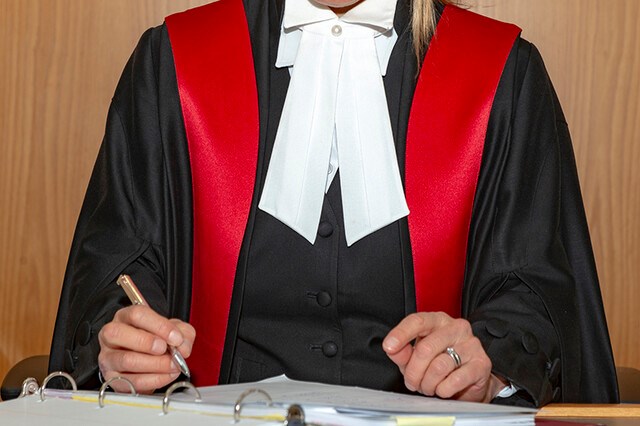A Kamloops lawyer is leading the charge to modernize an archaic tradition in B.C. courtrooms requiring some judges to be addressed as “my lord” or “my lady,” and his campaign is gaining steam — including the support of a former B.C. attorney general.
“I think in 20 years when I tell a young lawyer that in 2021 we walked into court and called judges ‘my lord’ and ‘my lady,’ they will laugh,” Jay Michi told Castanet Kamloops.
“They will not believe it. I truly believe that.”
Michi said his quest began after a move last month by both the B.C. Provincial Court and B.C. Supreme Court directing lawyers to provide preferred pronouns while introducing themselves and their clients in court.
If that’s going to be the case now in courtrooms across the province, he said, why is the B.C. legal profession still holding onto its feudal, gender-based honourifics?
Judges in B.C. Supreme Court and the B.C. Court of Appeal are addressed as “my lord” or “my lady,” while judges in provincial court are called “your honour” — the term Michi and others have said they'd like to see used across the board, as it is in some other provinces.
Michi wrote a letter last week to B.C.’s chief justices outlining his pitch.
“They responded back basically saying, ‘Thank you’ — that it’s a topic that comes up from time to time,” he said.
“I read it to be a polite response to my message but I also read it to mean nothing is going to come of this.”
But hope is not lost for Michi.
A tweet he penned about the issue last week sparked discussion online and Michi’s efforts eventually caught the eye of Geoff Plant, a former B.C. attorney general, who has since voiced his support.
“The [pronoun] directive to the profession correctly reflects the fact the world is no longer as simple as saying he or she or him or her,” Plant told Castanet Kamloops.
“The moment you recognize gender diversity, you have to ask yourself why in supreme court there is a difference between judges who are ‘my lady’ and judges who are ‘my lord.’”
Plant said it’s also good to revisit tradition every once in a while to make sure it’s still worthwhile.
“There’s lots of antiquity in the profession, and some of it is good,” he said.
“But it’s also good from time to time to ask why it’s good and what it’s upholding. If it’s run up against a world that’s changed, then it’s worth changing.”
Plant, who served as attorney general in Gordon Campbell’s BC Liberal government between 2001 and 2005, said he’s hopeful judges in all B.C. courts will soon be called “your honour.”
“I hope the chief justices make this change sooner rather than later,” he said.



